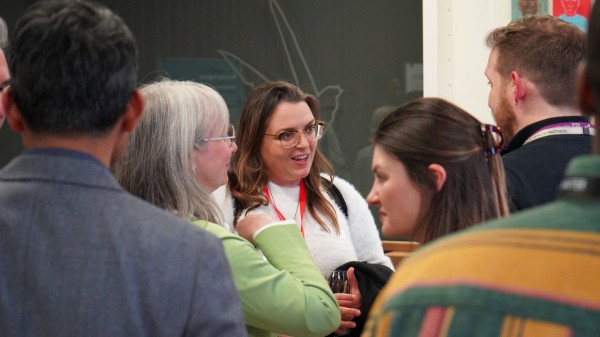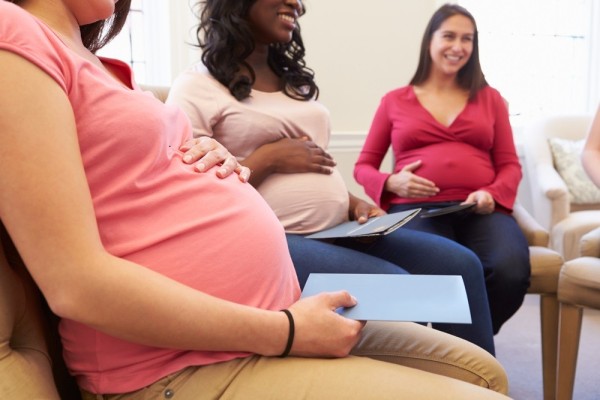In 2021, the South East London Integrated Care System (SEL ICS) commissioned King’s Health Partners Women and Children's Health (KHP WCH) to deliver the "Resilient Health Systems" (RHS), as part of an iterative approach to healthcare system design and implementation, to facilitate evidence-based decision-making in the health system.
Using a range of evaluation research methods, the project aims to generate and synthesise evidence to guide SEL ICS decision-making. This approach will identify the services, programmes, and policies that enhance the resilience capacities of the health system and, in so doing, allow decision-makers to make evidence-based choices about whether to start, stop, or scale-up innovations.
The RHS project is divided into three phases:
- Scoping: meetings with policymakers and healthcare professionals engaged with healthcare delivery in south east London to further refine the project parameters. [Completed]
- Co-design: working with key stakeholders to co-design the methods for learning and dissemination and identify priority areas for evaluation. Validating a conceptual framework used for mapping resilience capacities. [Completed]
- Implementation: mapping the resilience capacities of the south east London health system using qualitative and quantitative research methods. Rapid evaluation projects will generate evidence-based health service and policy recommendations. [Ongoing]
Research to date: Implementation Phase
Findings from the scoping and co-design phase of the RHS project indicated that in south east London, the health and social care systems’ ability to bounce back from shocks or absorb ongoing stressors remains precarious. The implementation phase of the RHS project focuses on mapping the resilience capacities of the SEL healthcare system. This phase has been underpinned by the conceptual framework developed during the co-design phase of the project. To date, the RHS project has undertaken:
Aim: understand where, how & why innovations in response to COVID-19 were introduced and understand the resilience capacities of the SEL health system.
Data collection: Five focus groups discussions (FGD) were held with approximately 31 purposively sampled participants. The focus groups covered five of the six domains in the conceptual framework: governance, services, resources, technology, and analytics. It was not possible to conduct a focus group for the finance domain. Participants were given ‘shock’ and ‘stress’ scenarios and asked to discuss the health system’s response. The data was analysed in relation to the resilience capacities outlined in the conceptual framework. This work was presented at the Health Services Research UK conference in July 2023.
Aim: understand where, how and why innovations in response to COVID-19 were introduced and understand the resilience capacities of the SEL health system.
The project team refined and tested the FGD findings by conducting rapid service evaluations of innovative changes to healthcare provision. The evaluated interventions were selected using pre-defined criteria agreed by the RHS project steering committee.
At the King’s Health Partners conference, a workshop was held to start prioritising a set of indicators for health system resilience. The workshop was attended by key informants in KHP and the SEL healthcare system. This is the first step towards a co-designed/produced Resilience Capacity Assessment.
Using the data collected from the focus groups, evaluations, and workshops, the team created a set of recommendations around system resilience, these were presented at the resilience indicator workshop and to the project steering committee and will be developed during the project extension.
Current work
The implementation phase currently has three workstreams:
A Resilience Capacity Assessment will systematically map and explore the resilience capacities of any given health or social care system. In the long term, this should lead to stakeholders routinely undertaking such analyses while planning and delivering services. Additionally, in the medium term, the RHS project is expected to lead to the further spread of evidence-based decision-making, with stakeholders across SEL using robust methods to make choices about whether to start, stop or scale-up innovations.
The framework developed during the co-design phase of the project represents the complex relationships between various interlinked concepts that influence health system resilience. Data from health and policy evaluations will be used to refine the framework so it can be used to design or evaluate interventions to improve system resilience.
Throughout the project the team will disseminate the findings of the Resilient Health Systems project.
-
Policy briefs for decision-makers at a sub-regional and place level.
- Academic papers to contribute to the evidence base.
- A community of Interest to ensure that stakeholders in SEL have the tools, skills and language to make evidence-based or evidence-informed decisions about whether to start, stop or scale up innovations that strengthen health system resilience.
Project team
The project is being delivered by a team of researchers based at King's Health Partners Women and Children's Health
- Dr Ingrid Wolfe (Principal Researcher), King’s College London
- Dr Ibidun Fakoya (Research Fellow), King’s College London
Frequently asked questions
We will evaluate ideas, processes, products, or procedures designed to significantly benefit the patients, healthcare professionals or the wider health system. Examples include:
- Vaccine buses
- Health screening tools
- New patient pathways
- Resident COVID-19 helplines
- Make Every Contact Count (MECC) initiative
- Community ambassadors
- Pharmacy hubs
- Staff retention schemes
- Co-produced community mental health projects
- New dashboards
- Remote monitoring apps
We are keen to evaluate:
- Asthma, Diabetes, Epilepsy, Hypertension, Depression or Cancer services;
- New ways of working or governance introduced during the pandemic;
- Telemedicine or remote monitoring services.
We can undertake evaluation research to answer a range of questions including:
- What is the feasibility and acceptability of a new or modified activity?
- Are activities being implemented as intended?
- What are the barriers and facilitators to service delivery?
- Were healthcare professionals who received intensive training more likely to effectively counsel, screen and treat patients than those who did not?
- Did the implementation of a co-designed community-based intervention result in increased knowledge and awareness in the target population?
- Who benefits the most from a programme, service, or activity?
- Did the intervention have any unintended (beneficial or adverse) effects on the target population(s)?
We aim to undertake each evaluation rapidly and provide findings within four-six months. Each evaluation follows a simple cycle shown in the figure above.
The RHS project conducts evaluations to benefit those delivering the innovation or intervention. Evaluation findings are often used to:
- Modify plans before full implementation;
- Maximise the likelihood that a programme or project will succeed;
- Provide early warning for problems that may occur;
- Monitor how well plans and activities are working;
- Understand if the intervention or innovation is effective in meeting its objectives;
- Provide evidence for policy and funding decisions.




